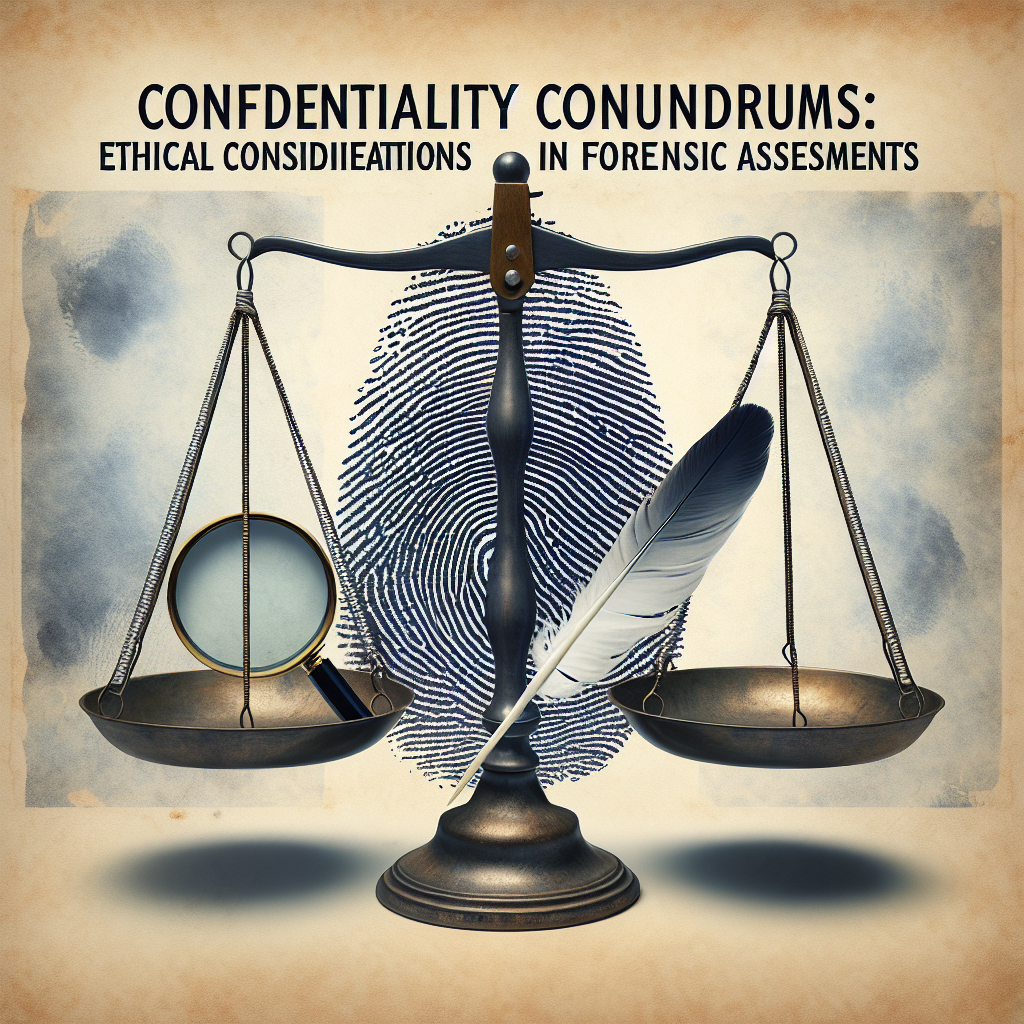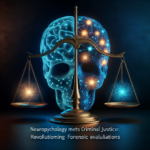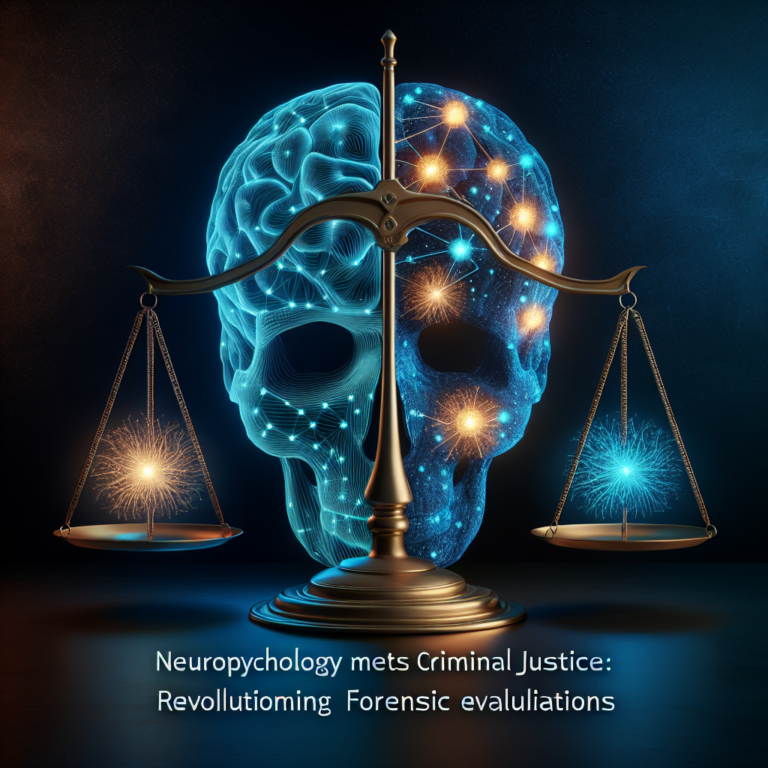
Introduction
In a world where information can determine freedom or incarceration, the tension between confidentiality and ethical considerations in forensic assessments is more pronounced than ever. In the legal ecosystem, forensics plays a crucial role, serving both the defense and prosecution. Yet, the core of this field faces a significant challenge: ensuring the confidentiality of sensitive information while navigating the ethical complexities inherent in legal matters.
This article delves deep into Confidentiality Conundrums: Ethical Considerations in Forensic Assessments, exploring the labyrinth of duties forensic professionals face. Through case studies, expert insights, and a thorough examination of legal frameworks, we aim to shed light on the delicate balance between protecting client confidentiality and fulfilling legal and ethical obligations.
Understanding Confidentiality in Forensic Assessments
What Is Forensic Assessment?
Forensic assessments are evaluations conducted to determine an individual’s mental state or capacity, often in relation to criminal cases. These assessments can include psychological testing, interviews, and evaluations of records. Forensic psychologists and psychiatrists play pivotal roles in this process, acting as objective experts who provide the court with essential insights.
The Importance of Confidentiality
Confidentiality serves as a cornerstone for all therapeutic practices, underpinning the trust necessary for effective communication. In forensic contexts, this trust is often tested. Clearly defining what confidentiality means in these assessments is vital because it impacts both the individual being assessed and the overall efficacy of the judicial process.
| Key Concepts of Confidentiality | Details |
|---|---|
| Informed Consent | Clients must understand the limits of confidentiality, including legal obligations. |
| Mandated Reporting | Forensic assessors may be required to report harm or illegal activities, complicating confidentiality. |
| Due Process | Confidentiality affects the rights of the accused and the integrity of the assessment process. |
Ethical Principles at Play
In understanding confidentiality in forensic assessments, it is crucial to recognize the ethical principles involved. These include:
- Beneficence: Doing good by ensuring clients receive appropriate assessments.
- Non-Maleficence: Avoiding harmful impacts that breach confidentiality may cause.
- Justice: Upholding fairness in the assessment process while navigating varying laws and ethical codes.
Navigating Confidentiality Conundrums: Case Studies
Case Study 1: The High-Profile Murder Trial
In a high-profile murder trial, a forensic psychologist was tasked with assessing the mental state of the defendant. During the assessment, the defendant disclosed details about potential victims that had not been revealed during the trial. The psychologist found themselves in a Confidentiality Conundrum.
Analysis:
In this case, the confidentiality of the disclosures clashed with the ethical obligation to prevent potential harm. The psychologist ultimately sought legal counsel to navigate this tricky landscape. This highlights the importance of having a clear understanding of when confidentiality must yield to the greater ethical duty of protecting others.
Case Study 2: The Child Custody Battle
During a custody evaluation, a mother confessed to struggling with substance abuse issues. The forensic evaluator faced a dilemma: should they maintain confidentiality, thereby possibly compromising the child’s welfare, or disclose this information?
Analysis:
In this scenario, the evaluator’s decision reflects a critical ethical consideration in Confidentiality Conundrums: the balance of protecting the mother’s privacy against the child’s right to safety. The evaluator decided to inform legal authorities, showcasing how confidentiality can sometimes be overridden by the need for child safety.
Case Study 3: The Insanity Defense
In a criminal case that concerned an insanity defense, the forensic expert had to consider how much information to share with the court. The defendant possessed certain privileged information that could have consequences for their assessment.
Analysis:
Here, the ethical considerations involved included safeguarding the defendant’s history while ensuring the court received all necessary facts to make informed decisions. The expert navigated this by summarizing findings without divulging sensitive details, illustrating that confidentiality can be maintained through careful reporting.
Bridging the Gap Between Ethics and Practice
Developing Confidentiality Policies
Forensic professionals must establish clear policies that define the scope of confidentiality in their practices. These policies should be informed by legal requirements and ethical guidelines and must be communicated effectively to clients.
Training and Education
Ongoing training in ethical decision-making and confidentiality laws can equip forensic professionals to handle these dilemmas better. Workshops, role-playing scenarios, and ethical consultations can bolster preparedness for real-world situations.
Encouraging Dialogue
Encouraging open dialogue around confidentiality issues among forensic professionals allows for shared insights and strategies. Regularly discussing Confidentiality Conundrums: Ethical Considerations in Forensic Assessments can help cultivate a community of practice that prioritizes ethical responsibility.
Conclusion
The field of forensic assessment presents unique challenges, especially regarding Confidentiality Conundrums: Ethical Considerations in Forensic Assessments. As the landscape of law and psychology continues to evolve, the delicate balance between confidentiality and ethical obligations must remain a top priority for professionals.
Through thorough understanding, ongoing education, and fostering dialogues around these topics, ethical quandaries can be addressed effectively. The essential takeaway for any forensic professional is this: maintaining confidentiality is not just an obligation; it is a commitment to ethical practice that upholds the principles of justice and safeguarding.
FAQs
1. What are the limits of confidentiality in forensic assessments?
Confidentiality in forensic assessments has limits, especially when there are concerns about imminent harm to self or others, child abuse, or if the information is required by law.
2. How should forensic professionals handle conflicting ethical obligations?
When conflicting ethical obligations arise, forensic professionals should seek legal counsel and consider involving ethical boards to ensure a balanced approach is taken.
3. What training do forensic assessors need regarding confidentiality?
Forensic assessors should receive training in legal standards, ethical decision-making, and confidentiality practices to effectively navigate the complexities of their roles.
4. Can confidentiality be waived in court?
Yes, confidentiality can be waived in court, but this typically depends on the consent of the assessed individual or legal directives.
5. What best practices can mitigate confidentiality conundrums?
Best practices include clear communication of confidentiality parameters, thorough documentation, and maintaining a commitment to ethical standards throughout the assessment process.
In navigating Confidentiality Conundrums: Ethical Considerations in Forensic Assessments, professionals must strive for balance, armed with knowledge and a commitment to ethical integrity. Each case presents a chance to affirm the importance of confidentiality while adhering to the ethical principles that guide the forensic field.















